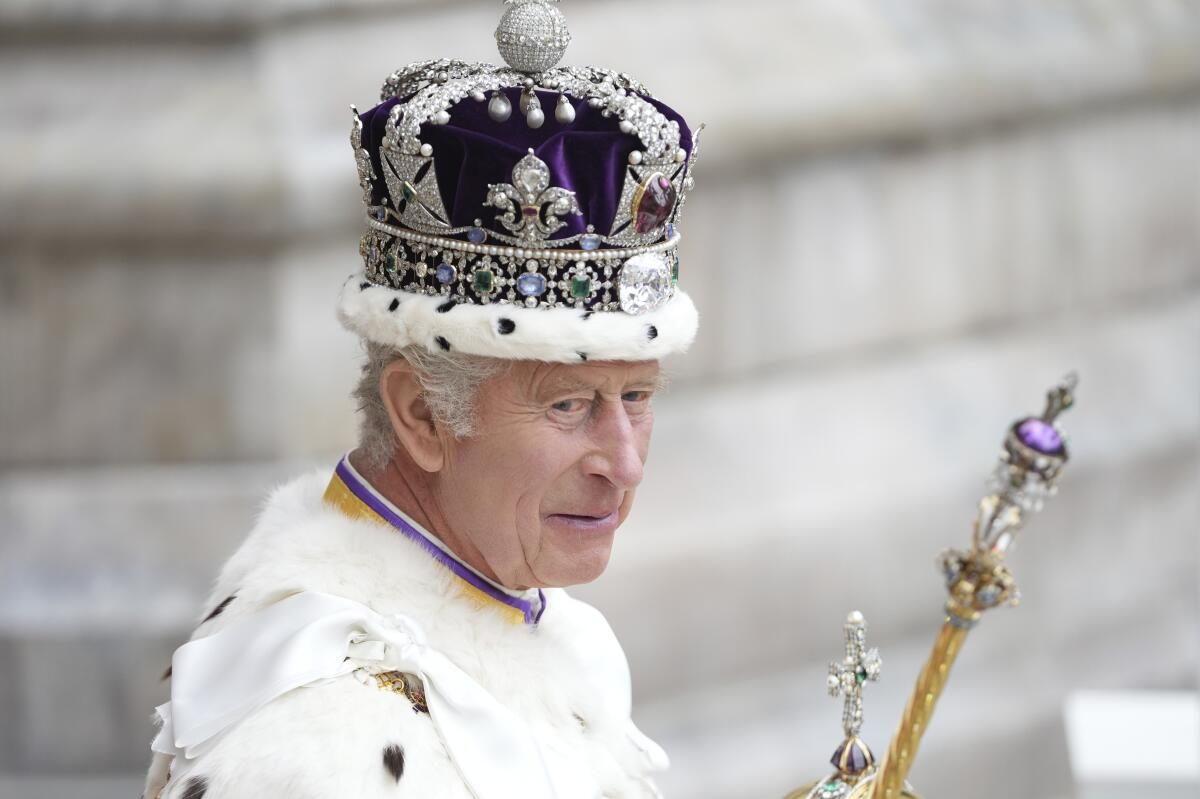King Charles III is under fire for his reputation as a demanding employer.
Known for his exacting standards and occasional flare-ups, the King’s personality has come into sharper focus thanks to royal expert Tom Quinn.
In his book, Yes Ma’am, The Secret Life of Royal Servants, Quinn provides a closer look at how Charles and Queen Camilla interact with their staff.
While they are generally respectful, there’s a clear formality that keeps them at arm’s length from those who serve them.
Quinn points out that although Charles and Camilla are kind, they don’t engage in casual banter or invite staff members for tea.
This preference for maintaining boundaries reflects a broader trend in royal dynamics, where respect is mixed with a desire to keep personal and professional lives separate.
One particularly fascinating insight from Quinn’s revelations is Charles’s tendency to get irritated over seemingly minor details.
Whether it’s the choice of teacup, the shine on his shoes, or how his toothpaste is squeezed onto the toothbrush, the King has high expectations.
These moments of frustration can erupt quickly, but Quinn notes that Charles often feels regret almost immediately after.
His temper may flare up, but it doesn’t linger long.
This scrutiny comes at a time when there’s growing speculation about King Charles actively seeking to bolster the ranks of working royals.
The departure of Prince Harry and Meghan Markle in 2020 left a noticeable void in royal duties, and the public removal of Prince Andrew due to scandal further complicated matters.
The monarchy now faces increasing demands with fewer hands on deck.
Royal expert Katie Nicholl weighed in on this situation, emphasizing the added pressure on the remaining royals.
With Harry and Meghan stepping back, the workload has shifted significantly.
They were expected to take on a substantial share of royal responsibilities, and their absence is keenly felt.
The remaining royals are now tasked with filling the gaps left by their absent counterparts.
Princess Anne, known for her relentless dedication, continues to manage hundreds of engagements each year, even as she nears her 75th birthday.
Her commitment to duty makes her one of the most active members of the royal family, but the burden is heavy.
The Duke and Duchess of Edinburgh have also stepped up to help shoulder some of the responsibilities.
Their increased involvement has been essential in trying to fill the void left by other family members.
However, even with their efforts, the strain on the royal family remains palpable.
Adding to the pressure, Kate Middleton, the Princess of Wales, has had to scale back her workload over the past year due to health concerns.
This reduction not only impacts her but also places additional strain on her fellow royals, highlighting the urgent need for new strategies or support within the family.
As King Charles contemplates the future, the challenge of managing royal responsibilities looms large.
The monarchy must find ways to adapt to its changing landscape, especially if it hopes to remain relevant and connected to the public.
With fewer working royals available to handle public engagements, the royal family faces a critical moment.
It’s becoming increasingly clear that recruiting more active royals or reassessing how they manage their duties is essential for maintaining the monarchy’s presence.
The royal family’s ability to thrive hinges on having enough active members to meet public expectations for appearances and charitable work.
Related Stories

